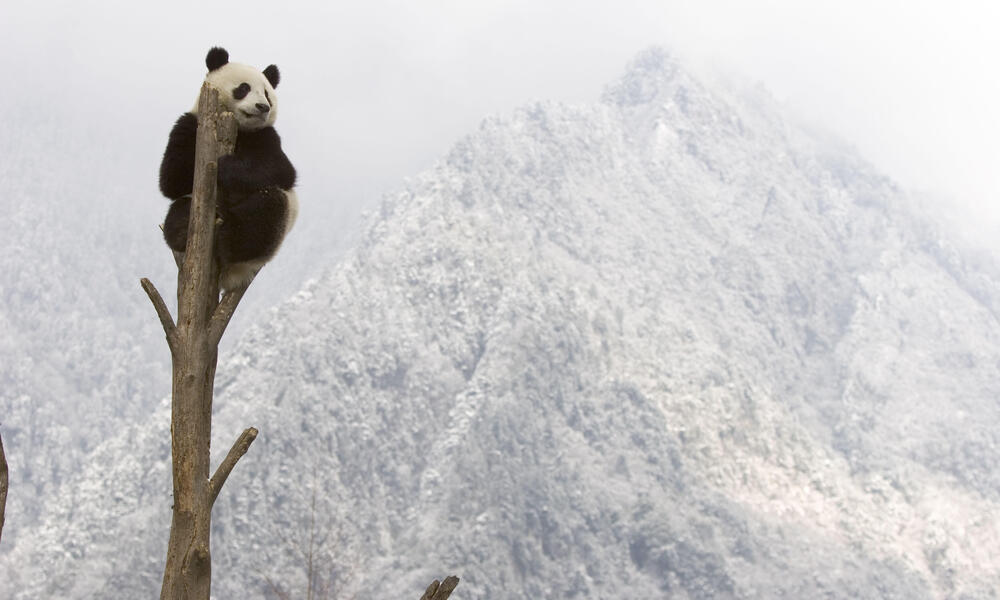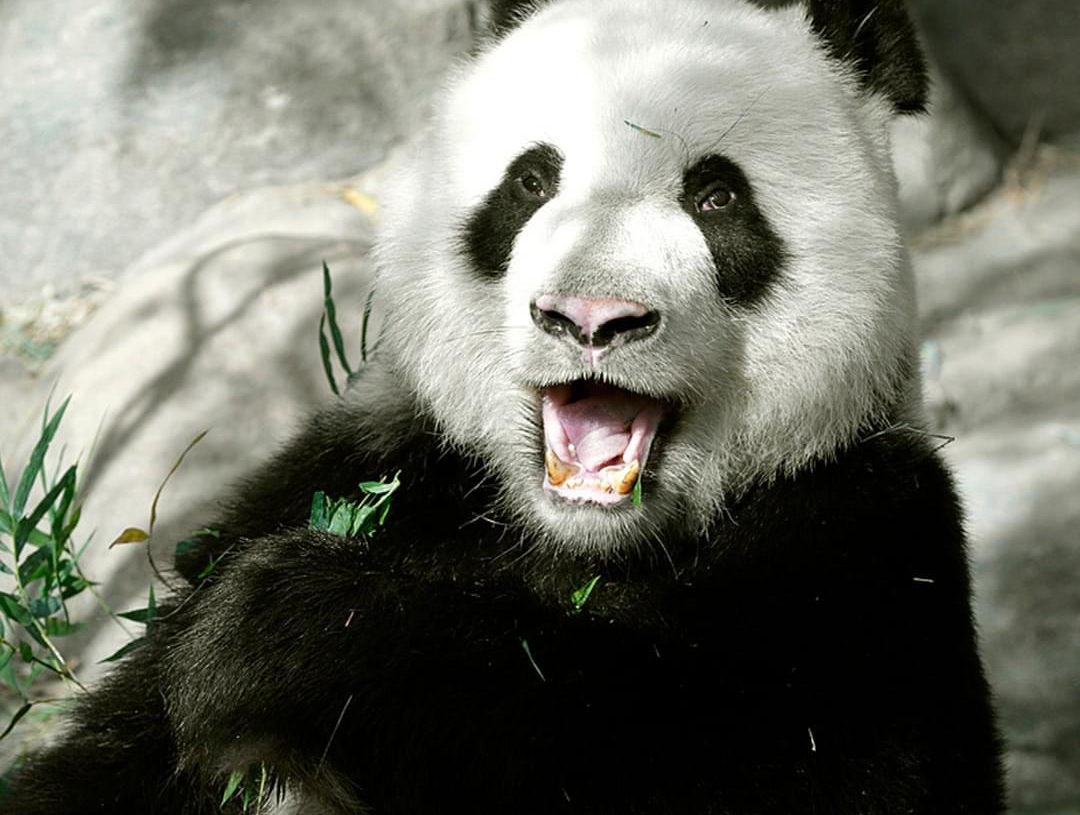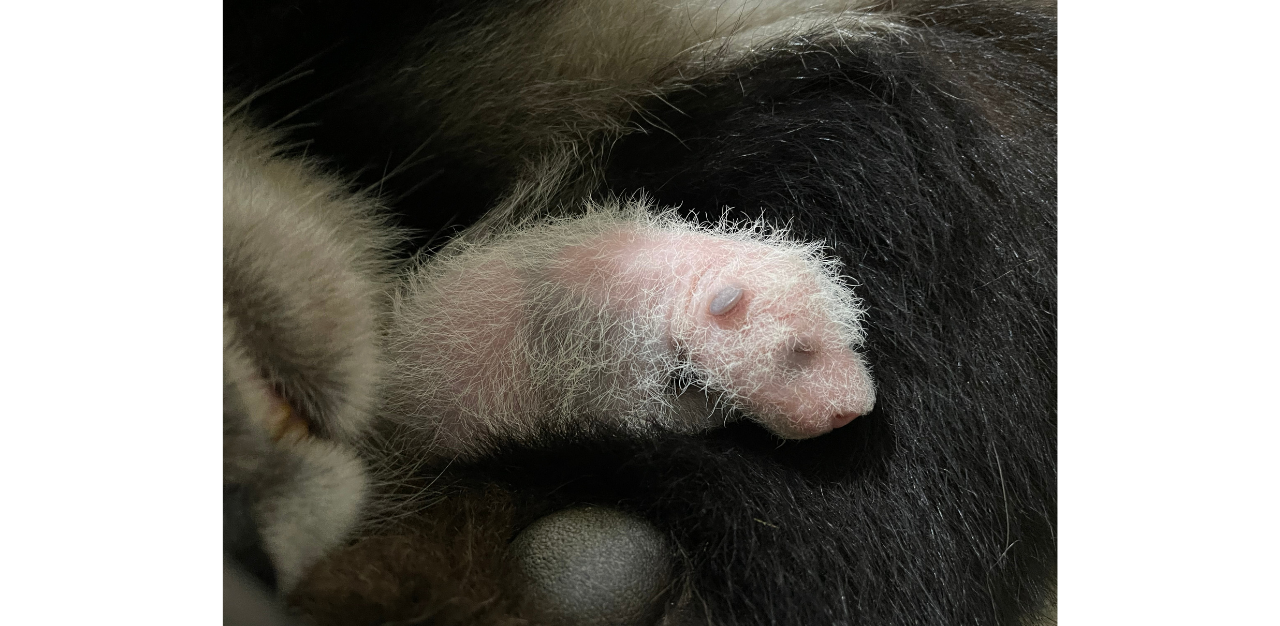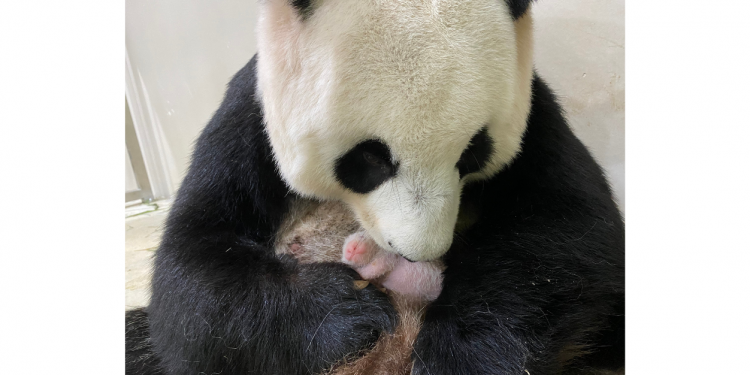After seven long years of waiting with anticipation, Wildlife Reserves Singapore’s (WRS) giant panda Jia Jia finally gave birth to her first cub on the morning of August 14.
The proud father is Kai Kai.
Both pandas arrived in Singapore from China in 2012, under a 10-year loan from China. But they only mated in 2015, when Jia Jia first started her estrus cycle — the equivalent of the human menstrual cycle.
Female giant pandas have only one reproductive cycle a year and are usually only receptive to mating for about two to three of those days, of which the female giant panda is fertile only for 36 to 48 hours.
The feat that River Safari’s animal care team has achieved is, therefore, a huge cause for celebration. “Outside of China, giant panda breeding is quite sporadic. Some countries have yet to achieve successful breeding despite attempting for many years,” says Dr Cheng Wen-Haur, Deputy Chief Executive Officer of Wildlife Reserves Singapore.
“Over the years, our animal care team has devised and refined various regimens and techniques that built up to the success this year, and we are glad to have been able to achieve this significant milestone.”
Despite being artificially inseminated, Jia Jia has turned out to be an excellent first-time mother. (Video courtesy of Wildlife Reserves Singapore)
The case against saving giant pandas
Despite this great news, there has been much contention over the viability of saving the species, even among experts.
Some conservationists question the rationale of dedicating a disproportionate amount of conservation to highly loveable animals like giant pandas, orangutans, tigers or elephants — what we term charismatic megafauna — instead of directing funding to where it is most urgently needed.
“The argument over charismatic megafauna is a dispute among conservationists themselves, because funding for conservation is limited. Lots of organisations that are trying to garner funding are in a catfight because there’s just not enough cat food going around,” says Dr Michael David Gumert, an Associate Professor at Nanyang Technological University.
Apart from the pandas’ slow reproduction rates, these carnivores-turned-herbivores have notoriously specialised bamboo diets, a rapidly shrinking habitat in the wild due to an increasingly urbanised world.
Recent studies have also shown that giant panda conservation is failing to revive the wider ecosystem, and that other animal populations have dwindled where giant pandas thrive.
Rehabilitation programmes to reintroduce giant pandas back into the wild have yet to be wildly successful, with captive-bred populations never fully socially acclimatising with their wild counterparts”, says Dr Gumert. There are possibly about 1,800 giant pandas still roaming the mountainous forests of central China, and this means that individual pandas like Jia Jia, Kai Kai, and their newborn cub, are likely to remain in captivity for the rest of their lives.

Still, a flagship for conservation
These systematic flaws in the delegation of conservation funds have been gradually addressed over the past few decades. “There has been a debate of whether or not that’s the best approach to conservation management, and that is the kind of conservation model that we’re slowly coming out of,” says Dr Gumert.
Dr Cheng highlights that the pandas in Singapore serve as a beacon for the rest of Singapore’s four wildlife parks, which cares for over a thousand species of animals — a quarter of which are threatened in the wild.
“A big part of conservation is about connecting people with wildlife, and often we need to do it at an emotional level,” says Dr Cheng. “The birth of our first panda cub is stirring the hearts of many who can relate to what Jia Jia is going through as a first-time mum, while all eyes are on how her cub is developing.”

Instead of merely saving iconic species, zoos get to play the unique role of “conservation Robin Hoods”, directing a portion of their revenue to the protection of less charismatic and conspicuous species and their corresponding habitats.
WRS, for example, is part of the Asian Species Action Partnership (ASAP), which targets critically endangered land and freshwater vertebrates in Southeast Asia.
“Every guest who visits our parks because of their favourite animals such as the giant panda, is not only learning about wildlife species and their habitats,” he says. “But by supporting our parks, they are also contributing to the care of all the animals there, as well as the species which we are protecting in the wild.”
A cultural symbol: of hope, peace, and excellence
Encouragingly, the population of giant pandas in the wild has shown an upward trend in recent years, and having captive-bred populations has contributed to their comeback.
In the past decade alone, their numbers have risen by 17 per cent to 1,800 — deemed a success story by the World Wildlife Fund.
“We’ll never know for sure if an animal is functionally extinct. Animal populations can be down to a critical number, but if given the right conditions, they can replenish — just as the giant panda population has doubled in the last 20 years,” says Dr Gumert.
For the veterinary team at River Safari, it certainly signifies a certain degree of professional achievement as well as a source of shared joy amidst the Covid-19 pandemic.
“It’s such a feel-good event, and importantly also signifies the close collaboration and friendship between China and Singapore,” says Dr Cheng.
Dr Gumert highlights the importance of also recognising the cultural significance that certain animals hold.
“The Chinese love pandas. They are part of their national pride. [To tell them to give up on protecting pandas would be] like going to the United States and telling them to stop protecting bald eagles,” he says.
“I don’t think there needs to be any single reason we conserve wildlife. The fact that we culturally love pandas is good for the pandas, but I don’t think we should try to restrain our interest in pandas just because maybe they wouldn’t survive without our help,” he adds.
How did we get here?
Giant pandas have roamed the earth for about 2 million years, spanning from Southern China all the way to Southeast Asia. What this implies is that wild giant pandas walked alongside our human ancestor, Homo erectus.
“Humans and animals have been living together for all of our history. And I don’t know how we’ve gotten to this stage in human evolution, where we now think that we should just separate ourselves from animals,” says Dr Gumert. “To me, that seems antithetical — humans and wildlife, we all need to live together.”
“I don’t think the reason why other animals are going extinct is that we’ve given all our money to pandas, rather, it is because of the impacts that we have on our environment,” he adds.
“If I know one thing about human goodwill, it’s that we don’t like to just sit around and watch something we love die out— especially not if we can do something about it.”

To support Wildlife Reserve Singapore’s conservation projects, visit any of their wildlife parks today.
Join the conversations on TheHomeGround Asia’s Facebook and Instagram, and get the latest updates via Telegram.














